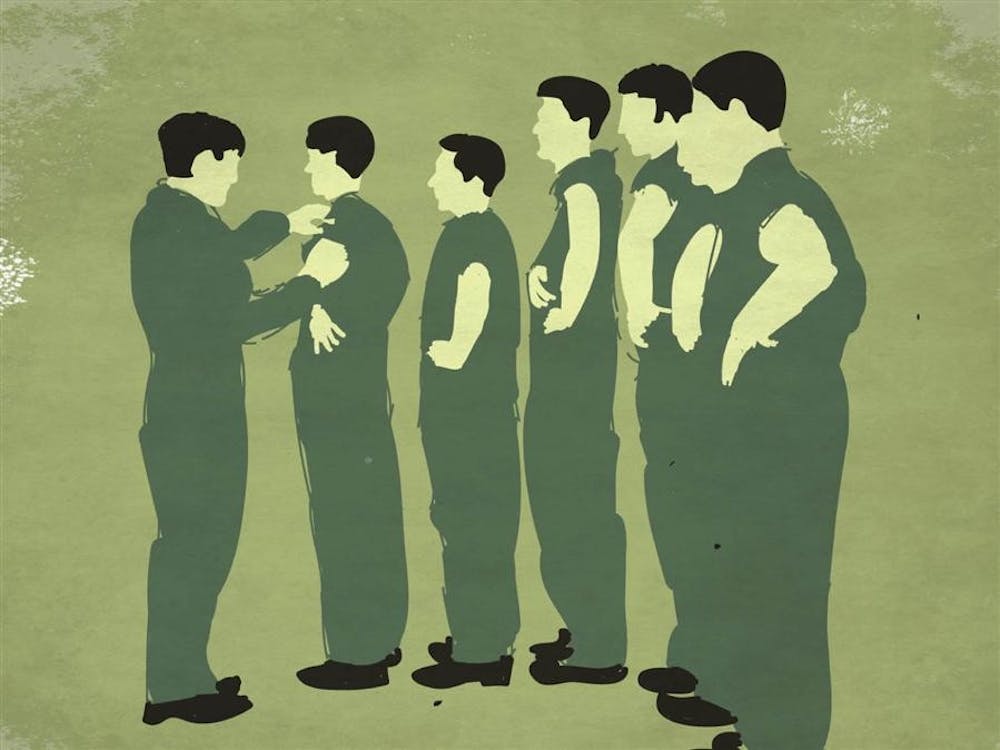On a hot August day in 1968, Hal Kibbey fi led into a long room with
hundreds of other men, all of whom had received the same letter. The
mandatory physical would determine who could be drafted. The men were
clumped in groups of 10, driven like cattle in only their underwear,
clutching their forms as they moved from station to station. Kibbey
didn’t know it yet, but the men who were drafted would be headed into
Vietnam for the deadliest year of the war.
During the vision test, the other men snickered as Kibbey stepped closer
and closer to try to read the eye chart on the wall. His only chance at
deferment was that he was extremely nearsighted. He could fnally make
out the big E at the top when we was three feet from the chart.
“I was hoping my eyesight would save me,” he says. “It didn’t. They just verified that I couldn’t see.”
Hopefully it would be enough to keep him out of the infantry. Maybe they
would send him to an office somewhere to do paperwork. He could do
that. He had no qualms with serving his country. But he would prefer to
do it with a typewriter instead of a rifle.
The hot, heavy air carried the voices of the soldiers throughout the
room as they instructed the men and stamped their papers at each
station. The tension was palpable. Each man watched the man before him,
waiting to see what would happen to him next. There was no small talk.
Just a long line of anxious men called to serve their country– whether
they wanted to or not.
Kibbey reached the end of the narrow room and approached the last station.
“Did you bring any letters from a physician?” asked the soldier seated at the table.
“Yes,” Kibbey said. “I have this one.”
Kibbey had seen various doctors regarding “dizzy spells” he had been
experiencing for the past six years. The minute-long episodes weren’t
noticeable to others and didn’t affect his ability to walk, drive or
function in general. He never paid much attention to them.
His personal doctor wrote an official letter printed on hospital
letterhead. Any hopes Kibbey had for a medical deferment had vanished
when he read the single page. The letter included no recommendations, no
plea for deferral, just a list of the symptoms and a mention of
Kibbey’s “dizzy spells.”
“I remember being disappointed and thinking, ‘So what? That’s not going to do anything.’ But I brought it with me.”
That’s the letter he passed to the soldier waiting at the last table.
And for the first time, he was directed not further down that long, narrow room, but to the side. A deviation.
He entered a cubicle, where a physician’s eyes scanned the page in one flowing glance from top to bottom.
“He didn’t even read it,” Kibbey thought. “That was the last chance I had and he didn’t even read it.”
“I’m doomed.”
Without saying a word, the physician stamped the letter and passed it
back. After being turned door with a new form. The bustle and bright
lights were gone. Two new officials sat in relative darkness.
Kibbey handed the form to one of the officials, who read it once.
Without a word, he set it down and picked up another page. Kibbey only
heard one part: “You will be drafted only in the event of a national
emergency. Do not try to enlist.”
The wave of emotion overwhelmed Kibbey, but he couldn’t determine the cause of the saving news.
“Psychologically, I was a basket case,” Kibbey says. “I got down to what
appeared to be the bottom and was shotgunned back up to the top.”
He took the form, turned, and walked into the sunlight, trying to digest what had happened.
“I had my student deferment for life,” he says. “The letter that I thought was worthless was what saved me from all of it.”
Dodging the bullet
IU News Bureau reporter Hal Kibbey legally evaded the draft.

Get stories like this in your inbox
Subscribe





